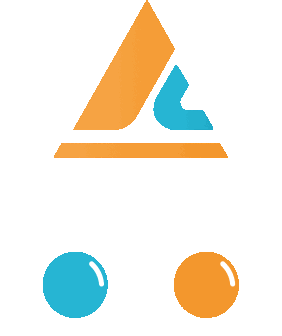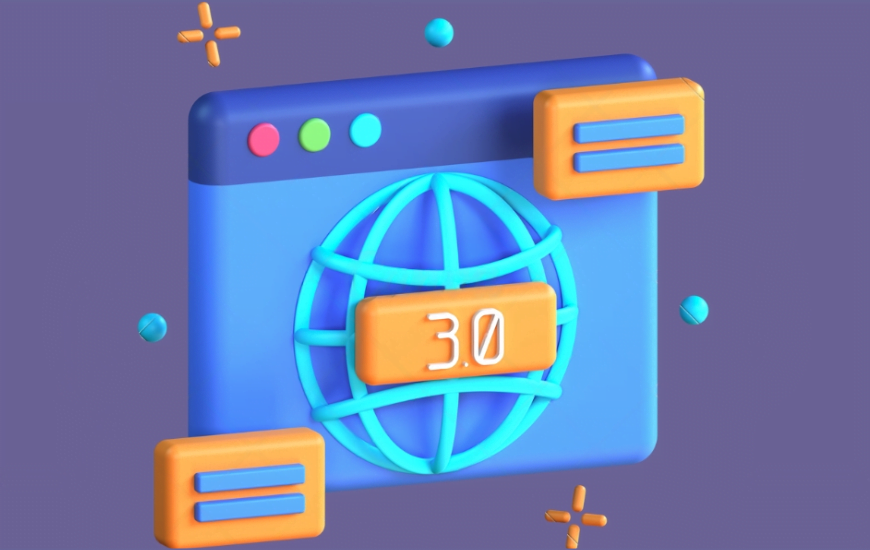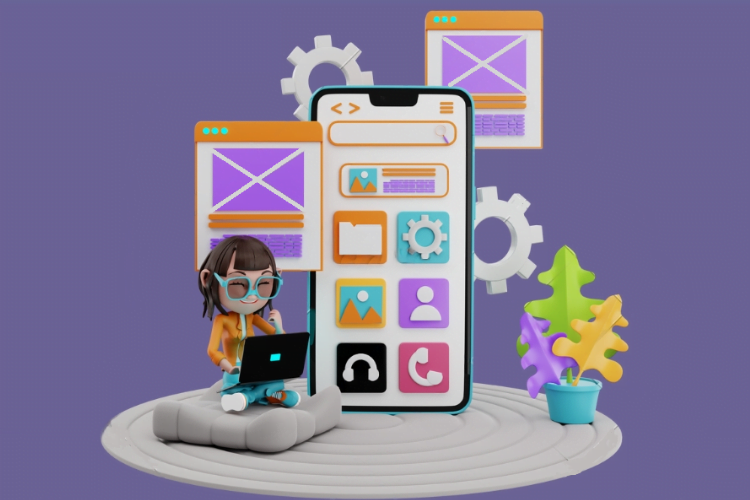
Close

BCoder Castle – Best Software App & Web Design Development Company 2023

Web 3.0 is often referred to as the “decentralized web” and is the next evolution of the internet after Web 2.0. While Web 2.0 introduced the concept of social media and user-generated content. It is focused on decentralization, blockchain technology, and creating a more secure, private, and user-controlled internet.
One of the key features of Web 3.0 is the use of blockchain technology, which allows for secure and decentralized transactions, data storage, and communication. Thus, users have greater control over their data and can engage in commerce without relying on intermediaries such as banks.
Web 3.0 also emphasizes the use of semantic web technologies, which help machines to understand the meaning and context of data on the internet. This can lead to more personalized and intelligent services, such as voice assistants that can better understand natural language and make more informed decisions.
Web 3.0 is characterized by a range of emerging technologies that are being developed to support a more decentralized and secure internet. A few of the key technologies that make up Web 3.0 include
This is a distributed ledger technology that allows for secure and decentralized transactions, data storage, and communication. Blockchains are used to create trust and transparency in a network without the need for intermediaries.
These are apps that run on a decentralized network and are not controlled by any central authority. They leverage blockchain technology to enable secure and transparent transactions.

It is a self-executing contract in which the terms of the contract between buyer and seller are directly incorporated into the code. Smart contracts enable more efficient and secure transactions without the need for intermediaries.
This is a peer-to-peer network protocol that allows for decentralized storage and sharing of files. IPFS enables users to store and access data in a distributed network without relying on a central server.
These are technologies that enable machines to understand the meaning and context of data on the internet. Semantic web technologies help to create more personalized and intelligent services, such as voice assistants that can better understand natural language and make more informed decisions.
This is the practice of communicating securely with third parties. Cryptography is used to protect data and communications in a Web 3.0 environment where security and privacy are paramount.
Blockchain technology is expected to be one of the key building blocks of Web 3.0, enabling a more decentralized and secure internet. One way in which blockchain technology is likely to be integrated into Web 3.0 is through the creation of decentralized networks. These networks will operate without the need for central authorities and will be used for a wide range of applications, such as decentralized finance, supply chain management, and social media. This will allow users to have more control over their data and transactions, and reduce the risk of data breaches and hacks.
Another way in which blockchain technology will be integrated into Web 3.0 is through the use of smart contracts. These self-executing contracts are written in code and can automate a wide range of processes, such as payments, identity verification, and voting. With smart contracts, transactions will be more secure and efficient, reducing costs and increasing transparency.
Blockchain technology will also be used to create new forms of digital assets, such as cryptocurrencies, which will be integrated into Web 3.0. These assets will be stored on decentralized networks, enabling peer-to-peer transactions and reducing the need for central authorities. Blockchain technology will provide a secure and transparent way to manage these assets, which can be used for a wide range of applications, including gaming, social media, and e-commerce.

Web 3.0 blockchain technology offers several benefits for businesses that adopt it. Here are a few key advantages:
Blockchain technology provides a high level of security for transactions and data storage. The distributed nature of the technology makes it difficult for hackers to breach the system, reducing the risk of data breaches and fraud.
Blockchain technology provides a transparent and auditable record of transactions, enabling businesses to track their supply chain and verify the authenticity of products. This can help to reduce the risk of counterfeit goods and improve accountability.
By eliminating intermediaries and reducing transaction fees, blockchain technology can help businesses to save money. This can be particularly beneficial for businesses that operate in industries with high transaction volumes.
Smart contracts, which are self-executing contracts written in code, can automate processes and eliminate the need for intermediaries. This can help to streamline business processes and reduce the time and costs associated with manual processes.
The increased security and transparency provided by blockchain technology can help to improve customer trust in businesses. This can be particularly important for companies that handle sensitive data or operate in industries where trust is essential, such as healthcare and finance.
Blockchain technology enables new business models, such as decentralized finance and peer-to-peer marketplaces, which can create new revenue streams for businesses.
Bcoder Castle is a web 3.0 development company that specializes in web development, blockchain technology, and software development. As Web 3.0 continues to grow and evolve, we can provide a range of services to help businesses and individuals stay ahead of the curve. We can help with building decentralized applications (dApps) that use blockchain technology for security. And transparency and developing smart contracts that automate certain aspects of business transactions. Generally, we are well-equipped to help clients take advantage of the latest web 3.0 technologies and improve their online presence in the Web 3.0 era.
Ans: Web 3.0 refers to the next generation of the internet, which is designed to be more decentralized, secure, and user-centric. It is expected to enable a more seamless and personalized online experience, with features such as artificial intelligence, blockchain technology, and decentralized applications.
Ans: Web3 is necessary to create a decentralized internet that empowers individuals, eliminates intermediaries, and provides more control over data/assets. It uses blockchain & another decentralized tech to enable peer-to-peer interactions and solve problems of centralization, censorship, and data breaches in Web2.
Ans: Web 3.0 differs from earlier versions of the internet by a variety of features. It is more decentralized, meaning that data and services are not controlled by a small number of central entities. It is also more secure and transparent, with blockchain technology providing secure and transparent record-keeping and transactions.
Ans: Web 3.0 is important for software development, allowing for decentralized apps and platforms with blockchain and AI. Web 3.0 offers secure, transparent, and user-focused software solutions and can create new business models and revenue streams for developers, such as decentralized marketplaces and tokenized ecosystems

